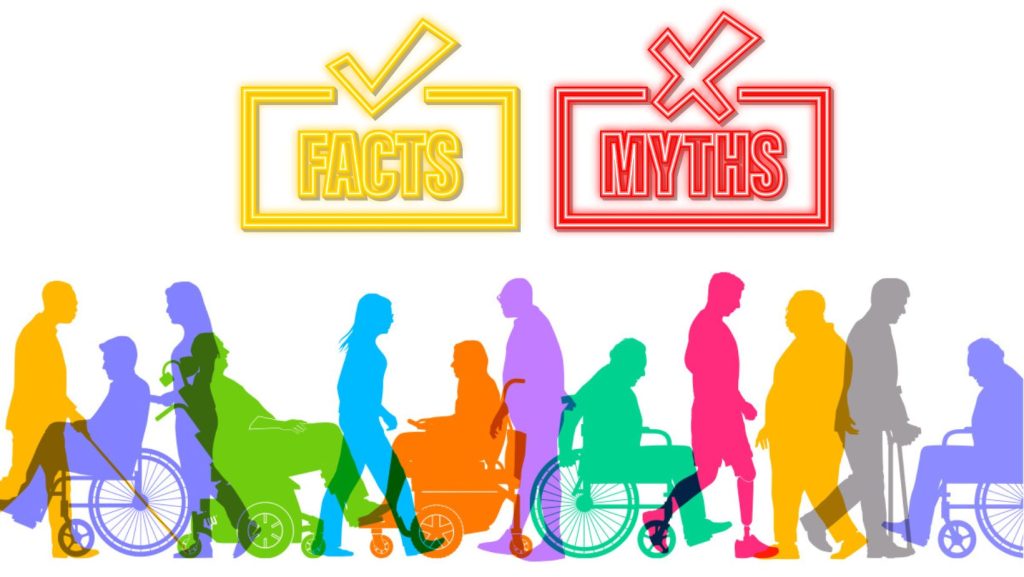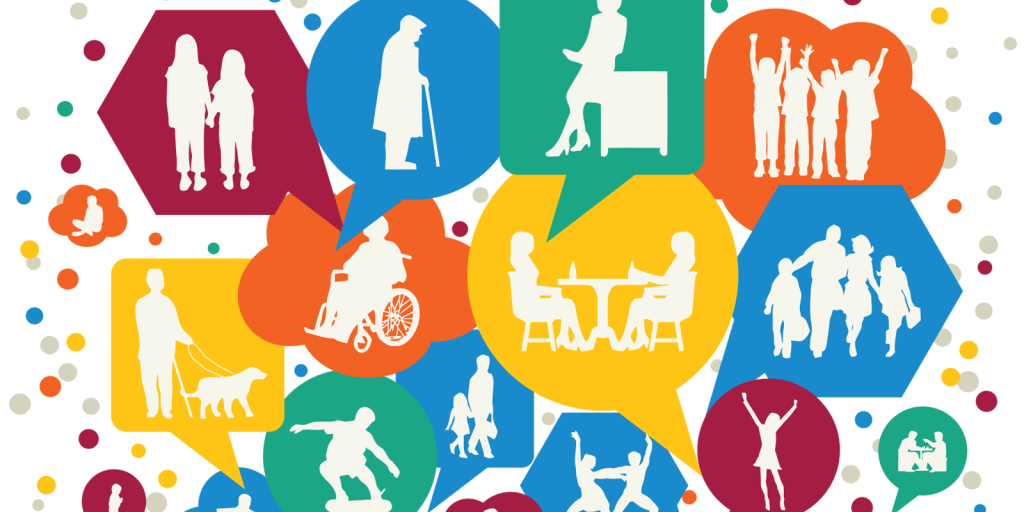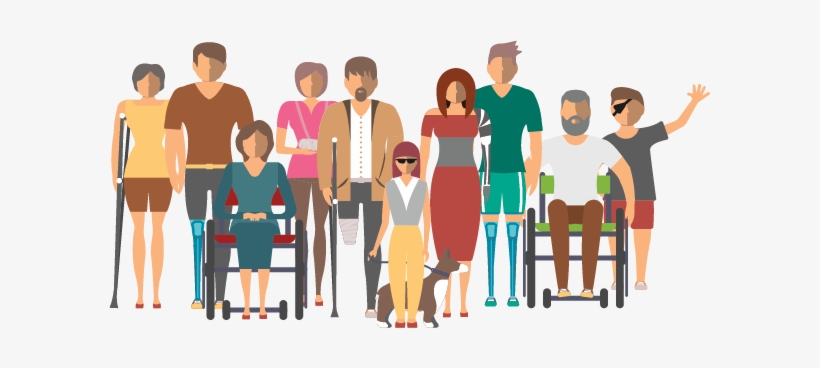
“Everybody’s fighting some kind of stereotype, and people with disabilities are no exception.” [1]
“Despite all the efforts to increase awareness about Individuals with developmental disabilities, they still battle rampant misperceptions and myths. These negative perceptions encourage stereotypes that are unfair, unfounded, and even cruel. Individuals may even lose opportunities to participate in activities or hold jobs because of the notion that they are unable to fit in or live up to the challenge.” [2]

Here are a few myths and facts about people with developmental disabilities:
Myth 1: “The lives of people with disabilities are totally different than the lives of people without disabilities.
Fact: People with disabilities go to school, get married, work, have families, do laundry, grocery shop, laugh, cry, pay taxes, get angry, have prejudices, vote, plan and dream like everyone else.” [1]
Myth 2: “People with disabilities always need help.
Fact: Many people with disabilities are independent and capable of giving help. If you would like to help someone with a disability, ask if he or she needs it before you act.” [1]
Myth 3: “Most people with ID have a severe intellectual disability.
Fact: 85% of people with intellectual disabilities are only mildly impaired. Most have minor disabilities that don’t get in the way of playing sports, being educated at inclusive schools, and being employed.” [3]
Myth 4: “Intellectual disability is contagious.
Fact: This is entirely false, as intellectual disability does not spread by any type of contact.” [4]
Myth 5: “They cannot learn.
Fact: Like every neurotypical person, individuals with developmental or intellectual disabilities are continuously learning. They can learn life skills, academic skills, social skills, and more. Their condition does not stop them from acquiring new knowledge and skills with proper education and training.” [2]

Myth 6: “Medicines and vitamins can cure intellectual disability.
Fact: When intellectual disability is caused by a treatable condition, appropriate treatment of that condition can cure it. There are however, no tonics that can stimulate a damaged brain.” [4]
Myth 7: “They cannot start a family.
Fact: People with developmental disabilities can definitely get married and have children and grandchildren of their own. While their condition is a factor, and the chances of passing down inherited gene mutations are a consideration, many of them have relationships and families already.” [2]
Myth 8: “Intellectual disability is a hereditary problem.
Fact: Intellectual disability is only sometimes inherited. Most often, it is caused by external influences, some of which can be prevented.” [4]
Myth 9: “They are all alike.
Fact: People with and without developmental disabilities are all human beings — and all human beings are unique, possessing their own personalities, traits, likes and dislikes, strengths and weaknesses, and stories. Even people with the same condition are completely different from one another.” [2]
Myth 10: Their disability defines them.
Fact: The disability does not make the person. Their symptoms cause them to adapt how they do things or experience some limitations, but inside, they’re just people like your neighbors, friends, and family. [2]

These myths and facts are more than just fascinating trivia. Is important to have known them as a way to support individuals with intellectual and developmental disabilities. The more we learn about their conditions, the better we can help and advocate for them.
Resources
[1] https://www.easterseals.com/support-and-education/facts-about-disability/myths-facts.html
[2] https://southsidebh.org/condition/myths-misconceptions/
[3] https://www.specialolympics.org/stories/athletes/common-myths-about-intellectual-disability
[6] https://acc.edu.sg/en/developmental-disabilities-myths-vs-facts/
